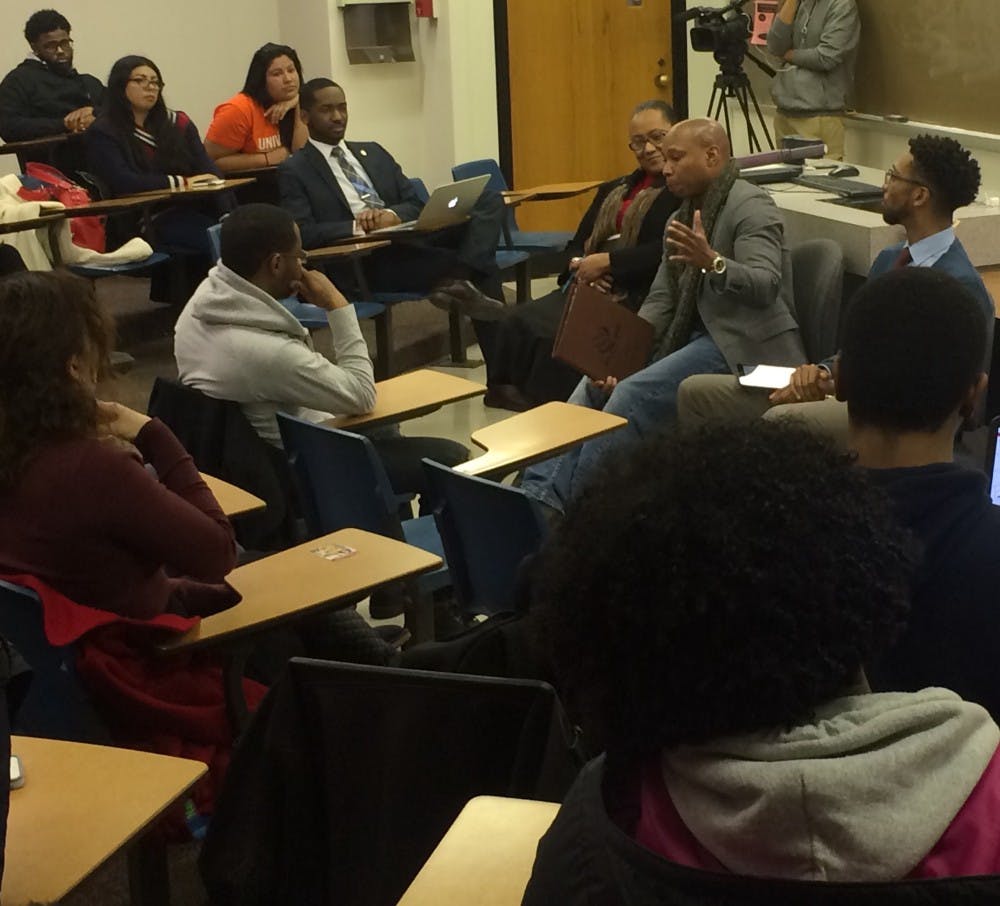This event — a part of BSA's Black History Month events — was dedicated in honor of the memory of James Weldon Johnson, a civil rights activist and a leader of the NAACP who played an important role in the creation of the Harlem Renaissance.
Three members of the Black Legislative Caucus spoke on a panel and answered various questions about events currently happening in the African American community.
The panelists were Terry Whitt Bailey, director of community development for Muncie; Rashawn Fond, family resource coordinator and director of youth programs at a local community center; and Bryan Chatfield, director of outreach and recruitment for the Marion County Election Board.
Students were able to ask questions and interact with the elected officials on topics including racism, the current state of America and homophobia.
The conversation began by comparing racism and sexism, with the question, “What is worse, racism or sexism?”
All of the panelists agreed this was a difficult issue to speak on and choose a definite position either way, but they said it typically depends on the situation.
Here are some other questions the panelists were asked:
“How would you explain racism to a child growing up in today’s society?”
The panelists had similar views, saying that racism is inevitable and one has to know how to handle it in the best manner.
"Know who you are and do what you love," Whitt Bailey said. "Don’t let the color of your skin stop you.”
"If black America were its own country, what would it look like to you?”
Whitt Bailey and Chatfield concurred on this question. Chatfield said "black America" would most likely mirror how America looks.
However, Fond said he doesn't like black America. He said it is not productive for African Americans to isolate themselves and to not pay attention to other cultures and races.
“We, as a race, are bettered by multiculturalism,” he said.
KeAyra Williams, a student who attended the event, said it's important to be able to look at issues from other views.
“At events such as tonight’s, we have the opportunity to see issues from another perspective, and learn new ideas from people of not only a higher power but people that host a wealth of knowledge and information," Williams said.





